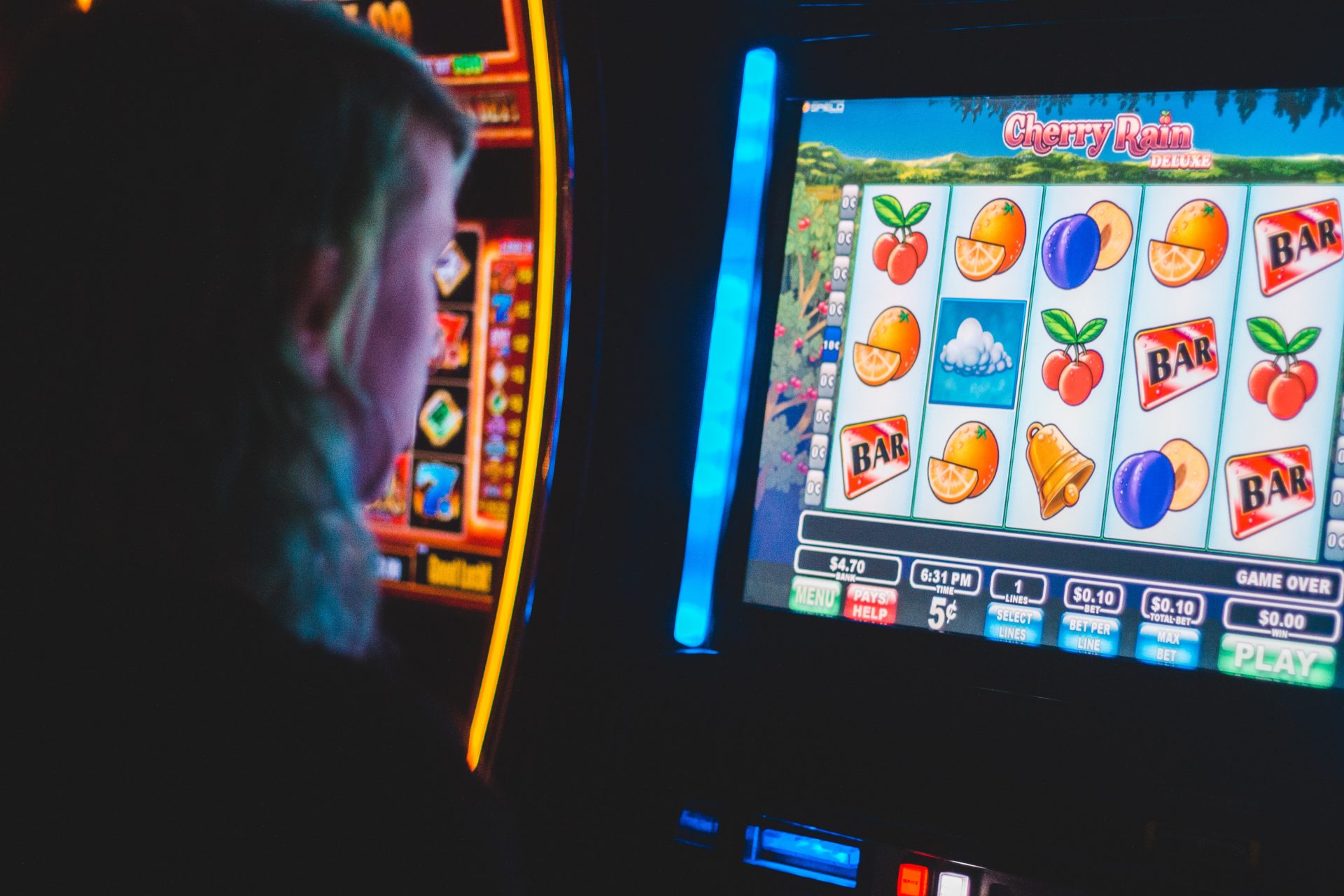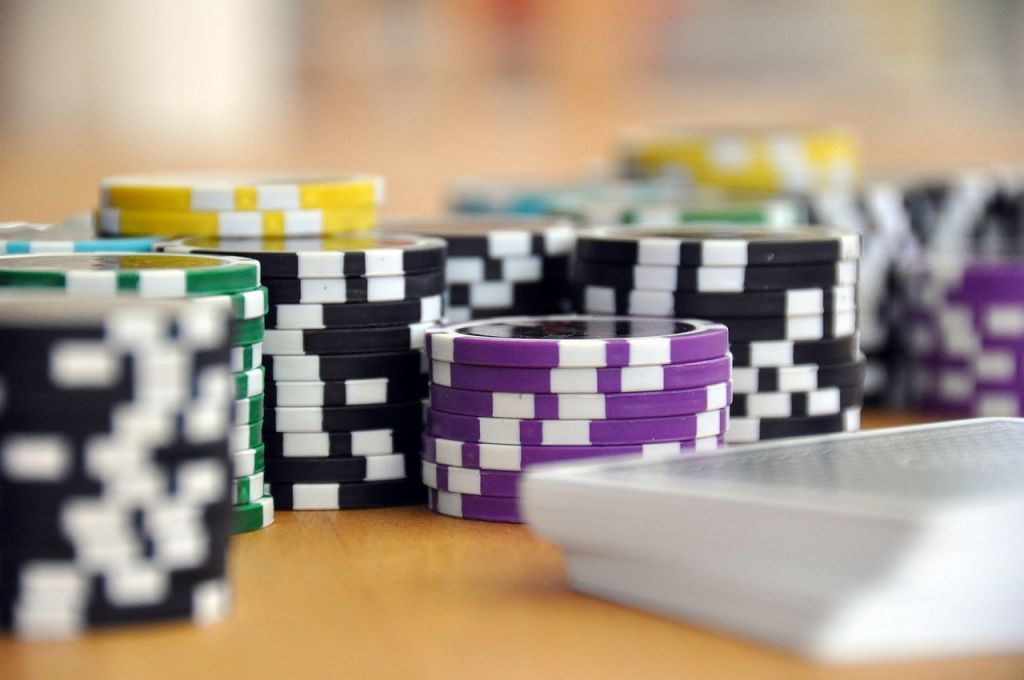Gambling on the second divisions in France and Italy? Some students dare to do it
-
 Foto ter illustratie: Abigail Keenan (via Unsplash)
Foto ter illustratie: Abigail Keenan (via Unsplash)
Gambling to supplement your student grant? Plenty of students give it a go. However, the three that Vox spoke to did not turn into inveterate gamblers. They put on the brakes when things threatened to get out of hand.
When he found himself still betting on Brazilian football matches at 3.00 a.m. and his sleep started to seriously suffer, Liberal Arts student Mark* (21) knew something was wrong. ‘I was talking to a friend about an acquaintance who was an addict, and then I thought: this is just what it’s like for me with gambling, and I don’t want that anymore. So I stopped cold turkey. I simply deleted TOTO and Unibet from my phone.’
For Law student Niels* (22), online gambling also eventually stopped being a bit of fun. ‘The fun I had winning 50 euro didn’t outweigh how bad I felt the day before when I lost 40 euro.’ It led Niels to ask himself: why am I actually doing this?
‘When the games in Europe stopped, I would bet on football matches on other continents at night’
He remembers why he started: boredom during the Covid-19 pandemic. ‘In that first year of the pandemic, I started placing some bets on football games. Later, I moved on to online fruit machines and blackjack. The latter mainly because you get quick results and you can bet a bit more than with fruit machines. Blackjack is also easy to play with friends.’
Boredom also played a role in Mark’s case. ‘I was nineteen and on a gap year. I started betting on Dutch football matches, but I loved the adrenaline rush, so I started looking for more matches to immerse myself in and bet on. I ended up betting a lot on the second divisions in France and Italy. And when the games in Europe stopped, I would bet on football matches on other continents at night. And that takes up a huge amount of time.’
New Vox
This story is part of the new Vox magazine, which is all about money. After some good years, the university is back to budget cuts. And not just the university, but its students as well, with the cost of living on a steep incline. Fortunately, the return of the basic study grant can help to stop the bleeding.
Additional warning
According to 2021 figures by research agency Breuer & Intraval, 64% of the Dutch population gambles. The majority (56%) play in a lottery. Students Niels and Mark are among about 5% of Dutch people who play physical and online slot machines, casino games, or who bet on sports matches.
These are global figures based on respondent surveys. We don’t have a more accurate picture of gambling in the Netherlands, says Arnt Schellekens. He is Professor of Addiction and Psychiatry at Radboud university medical center and National Rapporteur on Addictions for the Ministry of Health, Welfare and Sport. ‘We don’t see many people with gambling addictions in addiction treatment centres,’ he says. ‘But that doesn’t mean they aren’t there. We would have a better view of it if the gambling industry shared data, but that hasn’t been the case so far. For our research and to improve prevention, we are very interested in differences between people who gamble occasionally and people who lose a lot of money on gambling.’
‘In total, I bet 280 euro online, and ended up winning 282 euro’
Short games with quick results pose the greatest danger when it comes to addiction, as Schellekens knows. ‘Especially short-cycle games where you’ve got little influence, like fruit machines. I think we should issue an extra warning precisely for these games, just like for alcohol or risky investments. We know that these fast-paced games have a strong effect on the reward centre in players’ brains. If a player has to wait for a long time for a result, it’s less exciting. That’s why traffic fines don’t work very well. Because you get the fine a long time after the offence, you are less likely to change your behaviour.’
Blind luck
The gambling students in our story are not among the problem gamblers, Schellekens wants to stress. Precisely because they raised the alarm in time. For example, former student Jasper* (26) finds the ‘dangerous’ games annoying precisely because he can’t influence them. ‘I don’t like fruit machines,’ he says. ‘They’re just based on blind luck. Even with roulette, I feel that I’ve got more influence, because I can decide which colour I think the ball will land on.’
Jasper started gambling about five years ago, during his student days. An evening at Holland Casino once or twice a year, betting on sports games once or twice a month, and in the past, online casino games. ‘In total, I bet 280 euro online, and ended up winning 282 euro. So over the course of one year, I made 2 euros: not a great hourly rate!’ He sees a visit to the casino as a night out. ‘We go there with a group of friends and we agree on our limit. So I assume that I’ll lose that money.’ In his student days, the limit was 20 euro, Jasper says. Now that he and his friends are working, it’s 50 euro.
Student Mark, who gambled a lot in his gap year, was only allowed to put 100 euro a week into his online gambling account because of his age and the rules of the gambling platform at the time. ‘I did put in that full amount every week. When I stopped, I was 300 euro in credit.’ He also saw friends playing casino games for higher amounts. ‘For me that risk was too great. You never win at the casino. I do want to have some degree of influence.’
Gambling stop
Professor Schellekens suspects that lotteries and sports betting do not easily escalate to risky behaviour. Yet he also warns against this kind of gambling. ‘If you know you are addiction-prone, it’s important to stay away from these kinds of games. You can gain insight into your susceptibility to addiction by considering whether you are quick to want more with things like tobacco or alcohol, or if you know that you tend to lose yourself in addictive games. Some people are more focused on short-term rewards and spend money quickly, while others look more to the long term and save. Focus on short-term rewards increases the risk of addiction.’
‘I realised that boredom, combined with wanting to win lost money back, was taking me to a dangerous point’
For student Niels, the fun disappeared because of the unpleasant feeling he got from losing. ‘The highest amount I bet in one go was 150 euro. I’ve lost and also won that amount. I realised that boredom, combined with wanting to win lost money back, was taking me to a dangerous point. That’s when I stopped. A friend of mine, who was already working and playing for more money, set up a gambling stop for himself. Through the gambling government authority, you can set it so that you won’t be allowed in a physical or online casino for at least six months. For him, that worked really well.’
Downward spiral
Arnt Schellekens would like to see more prevention. He finds it worrying that the threshold for gambling on phones is so low. ‘You’ve always got your mobile on you, and hardly anyone sees you playing. Problematic gambling may be related to other mental health problems. For some people with ADHD, gaming can sometimes bring focus and calm for a while. People who are anxious or sad may be able to find some distraction in it without having to leave their house. However, we also know that people with these conditions have a higher risk of developing a gambling addiction.’
Gambling problems can send people into a downward spiral, says Schellekens. He wants more social dialogue around this problem. GPs, study and career counsellors and psychologists should ask students about gambling more often. ‘If someone skips lectures a lot, you should also ask them about gambling. The social environment is really important in such cases. Besides providing support, it also has a signalling function. An empathetic confrontation can motivate a person to take action.’
‘Gambling problems occur in all layers of society’
Schellekens knows stories of women who ended up in prostitution to pay off their debts. There is even a link to suicidality. ‘A third of people with a gambling addiction think about suicide, and half of them actually attempt it. When a person falls into social isolation, this sometimes seems like the only way out.’
The students Vox spoke to talk openly about their gambling habits. ‘I can’t imagine my friends keeping their gambling problem secret,’ says Jasper. ‘Gambling isn’t a taboo subject among my friends. It’s just fun to play together,’ says Niels. For Jasper too, gambling together is part of the fun. ‘We watch a match and everyone bets 5 euro. That way you share the extra excitement with each other.’ For him, these have to be matches that he actually finds interesting, or that he was going to watch anyway. ‘When there was nothing to do during lockdown, people would bet on football matches in Kazakhstan, because that was the only league still active. But that’s not my thing.’
In the Netherlands, online gambling has been legal since 2021. Professor Schellekens wonders whether the rules are clear enough, and whether they are properly enforced. ‘Game limits work well when there are only two gambling operators, like in Norway. But if you’ve reached your limit in the Netherlands, you just go to one of the dozens of other providers. You could hold gambling companies liable for damages arising from gambling if they didn’t do enough to protect gamblers. That’s what happened in Austria, for example.’
Our interviewees are critical of the gambling industry. ‘Once, by blind luck, I won 400 euro,’ says former student Jasper. ‘I noticed right away that I had to be careful. It made me feel a little too good and gave me the urge to gamble more. On this kind of online platform, you are then offered lots of opportunities to bet the money you just won. Transferring the money from the site to your bank account requires a lot more effort.’
Block gambling sites
Gambling companies are trying hard to enlist new players, for example by offering them 50 euro of extra play money when they wager their first 10 euro. Student Niels thinks this is dangerous for young people who have just left school, for example. ‘Good warnings are important in such cases.’
Professor Schellekens also sees a role for the University when it comes prevention. ‘You could check whether it’s possible to block gambling sites through the campus Wi-Fi network. That doesn’t mean people will stop gambling, but it’s about the message you communicate. By not selling alcohol at the Refter, you’re also sending a message.’ Schellekens also stresses the importance of communication. Share stories about gambling problems. And don’t assume that reasonable people can’t develop a gambling problem. ‘Gambling problems occur in all layers of society.’
None of the gambling students ended up stopping completely. Niels: ‘As long as it’s still fun, I will keep going for a while.’ Following a long stop, Mark resumed betting during the football World Cup. ‘I only bet once a week now. I’ve got a much busier social life these days. I don’t want to go back to the time when it had so much impact on my life; it’s not worth it. It’s just annoying that I hardly ever win anything these days,’ he says, laughing. ‘As a poor student, I could certainly use an extra 20 euro.’
* The names Mark, Jasper and Niels are fictitious at the students’ request.







